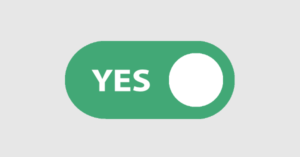Cubicle manufacturers hate it. Water cooler sellers dread it. Keurig stations shudder at its name. Remote work. Remote work. Remote work!
Working remotely is on the rise, and will continue to do so long after COVID-19 runs its course. If you’re thinking about ditching the office but aren’t sure how, learning one (or more!) of the following skillsets will increase your chances of landing a remote job.
Software Development
Software development is the most in-demand remote job in the world. And with a median salary of $66,000/year, you can probably afford a decent home office setup in which to operate.
Software development might be the job for you if you like solving problems, building things, and continuous learning. Even the best developers have to jump on GitHub or Stack Overflow from time to time to crowdsource a solution. In fact, development practically necessitates collaboration, making the development community extremely tight and incredibly helpful.
So what skills does a remote software developer need in 2020? Well, a lot of them. Google “software development skills” and you’ll find list upon list of subjects like programming languages, algorithms, databases, and encryption. But good news (and, as you’ll find, a running theme in this article): you don’t have to learn everything.
Instead, choose a software development concentration. For example, going from software development to Java development immediately cuts your required skill set in half. And you don’t have to stop there. Refining your concentration to mobile Java development, or even mobile game Java development, turns a near Herculean task into something much more reasonable.
Digital Marketing
Digital marketing is another wildly in-demand skill set. Digital marketers are responsible for services like social media campaign planning, content coordination, SEO, and PPC ads. Remote digital marketing jobs average a median salary of $50,500/year, and nearly every industry is hiring.
Digital marketing might be the job for you if you like pimping other people’s products, interpreting analytics, and turning data into stories. Digital marketers are in charge of getting the public’s attention, pointing it at this dishwasher fluid or that picture frame manufacturer, and getting you to click “buy.”
To become a remote digital marketer, take a look at a handful of remote marketing job postings and see what employers are looking for. Again, you don’t have to be proficient in every digital marketing skill out there. Consider what specific aspects of the marketing process interest you. Do you like interacting with the online community? Maybe you’d be a great Digital Audience Specialist. Are you more interested in analyzing data and trends? Then think about becoming a Digital Marketing Analyst.
Web Design
Coming in hot at a median salary of $65,000/year, remote web design is generally broken into two categories: User Interface (UI) Design and User Experience (UX) Design. The two are often used interchangeably, but there’s a distinct difference: UI is more about the look of a website, and UX is more about the feel. Again, there’s a lot of overlap here, but focusing on one or the other will help you establish a more focused set of skills to master.
If you’re more into things like color schemes, typography, and overall aesthetics, UI is the way to go. Its skill set includes stuff like:
- design theory
- color theory
- web typography
- Photoshop and other illustration/sketch software
- basic front-end development (HTML5, CSS3, JavaScript/jQuery)
If you’re more into things like user empathy, user interaction, and more advanced coding, UX is your ticket. Its skill set includes stuff like:
- wireframing
- prototyping and testing
- information architecture
- user and usability research and analytics
Copywriting
At a median salary of $43,000/year, copywriting pays a little less than the more technically-oriented remote jobs, but it also involves zero coding (phew). Like the aforementioned skill sets, copywriting is an umbrella term for a bunch of different writing disciplines such as product descriptions, sales and ad copy, PR, and web pages.
You might like copywriting if you like translating dry and/or complex ideas into digestible, engaging content and encapsulating the characteristics of a company (or product, person, place, etc.) in a powerful and pithy ethos.
A lot of copywriters do everything under the sun, but there are plenty who pick a particular focus and run with it. Either way, it’s good to start by concentrating on one area and expanding from there. To help narrow it down, this might help:
- Product descriptions are more about making the product sound appealing.
- Sales and ad copy are more about creating a feeling.
- PR is more about making the company sound successful and professional to the public.
- Web pages about things like Vision and Mission Statements are more about forging a personal connection with the customer.
Takeaways
- If you want a remote job, pick a skill set, and decide on your particular focus. Instead of software development, focus on Embedded Systems Development. Instead of Web Design, focus on UI Design.
- Software Development involves problem-solving, building things, and continuous learning.
- Online Marketing involves making other people’s products look appealing, understanding analytics, and turning raw data into an engaging story.
- Web Design is split into UI and UX. UI is more focused on how things look, and UX is more focused on how things feel.
- Copywriting involves making the dull sound delightful, the convoluted sound simple, and the vague sound specific and important.
Next Steps
So what can you do now to move towards your remote career goals?- Use our library of books and courses to build the right skillset
- Learn how to prepare for a remote job search
- Find out what to look for in a remote job
- Keep up-to-date with the latest roles on our remote job board
Frequently Asked Questions (FAQs) about High-Demand Skillsets for Remote Jobs
What are the top high-demand skillsets for remote jobs in 2023?
The top high-demand skillsets for remote jobs in 2023 are expected to be in the fields of technology, digital marketing, and project management. These include skills like coding, data analysis, SEO/SEM strategies, and agile project management. The demand for these skills is driven by the increasing digitalization of businesses and the need for professionals who can work effectively in a remote environment.
How can I acquire these high-demand skillsets?
There are numerous online platforms that offer courses in these high-demand skillsets. Websites like Coursera, Udemy, and LinkedIn Learning provide a wide range of courses in fields like coding, digital marketing, data analysis, and project management. Many of these courses are self-paced, allowing you to learn at your own convenience.
Are there any certifications that can boost my chances of landing a remote job?
Yes, obtaining certifications in your chosen field can significantly increase your chances of landing a remote job. Certifications not only validate your skills but also demonstrate your commitment to professional development. Some popular certifications for remote jobs include PMP for project management, Google Analytics IQ for data analysis, and HubSpot Inbound Marketing for digital marketing.
What are some tips for applying for remote jobs?
When applying for remote jobs, it’s important to highlight your relevant skills and experience in your resume and cover letter. Also, emphasize your ability to work independently and communicate effectively in a remote environment. If you have any experience working remotely, be sure to mention it.
How can I stay updated with the latest high-demand skillsets for remote jobs?
Staying updated with the latest high-demand skillsets for remote jobs requires continuous learning and professional development. Follow industry blogs, join relevant professional groups on LinkedIn, and attend webinars and online workshops. Also, regularly check job listings to see what skills employers are currently looking for.
Can I transition to a remote job without any prior remote work experience?
Yes, it’s possible to transition to a remote job without any prior remote work experience. However, it’s important to demonstrate your ability to work independently, manage your time effectively, and communicate well in a remote environment. Acquiring high-demand skillsets and certifications can also increase your chances of landing a remote job.
Are there any specific soft skills required for remote jobs?
Yes, apart from technical skills, certain soft skills are also crucial for remote jobs. These include self-motivation, time management, communication, and problem-solving skills. Being able to work independently and stay productive without constant supervision is also important.
What are the benefits of working remotely?
Working remotely offers several benefits including flexibility, no commute, and the ability to work from anywhere. It can also lead to increased productivity and better work-life balance.
Are remote jobs as secure as traditional jobs?
The security of a remote job depends on the industry, the company, and the nature of the work. However, as more companies embrace remote work, remote jobs are becoming as secure as traditional jobs.
Can I work remotely if I’m not based in the same country as the company?
Yes, many companies hire remote workers from all over the world. However, you’ll need to consider factors like time zones, communication, and legal requirements.
 Joshua Kraus
Joshua KrausJosh Kraus is a Chicago-born, Denver-based writer and mediocre autobiographist with an interest in art, entrepreneurship, and emerging industries. When he's not writing, he attends to his t-shirt business, Bird Fur. Find him at joshkra.us and birdfurtees.com.








